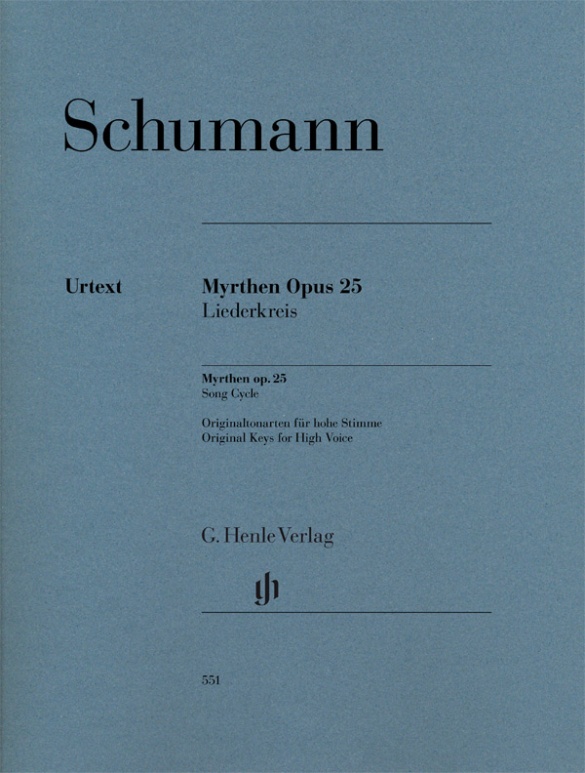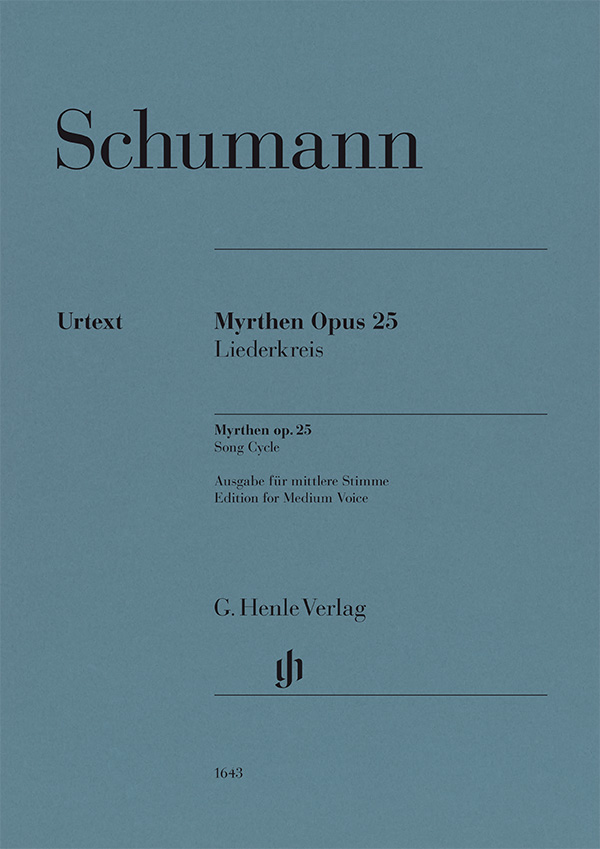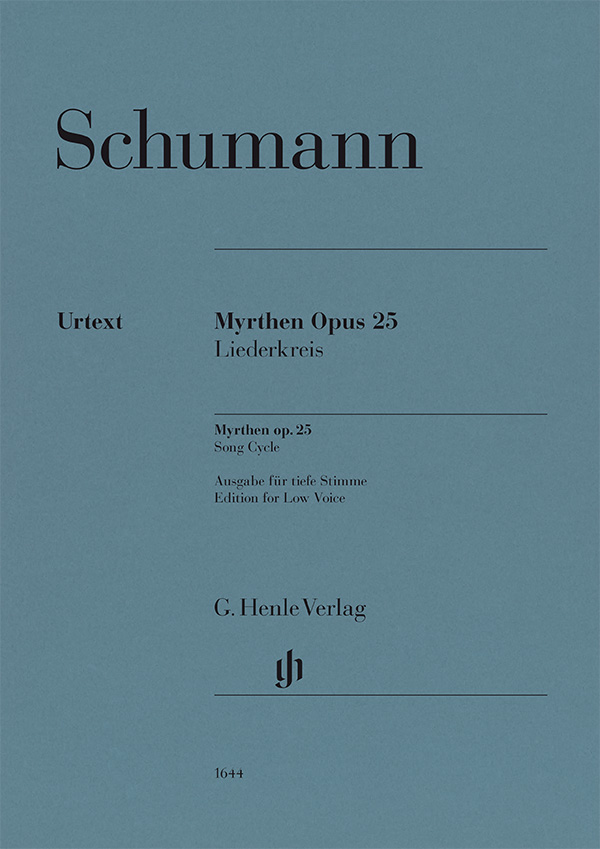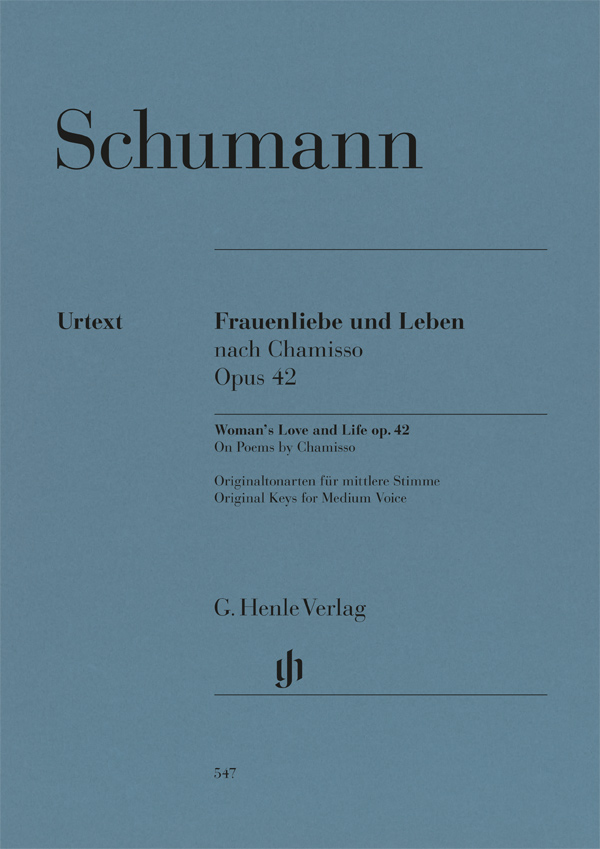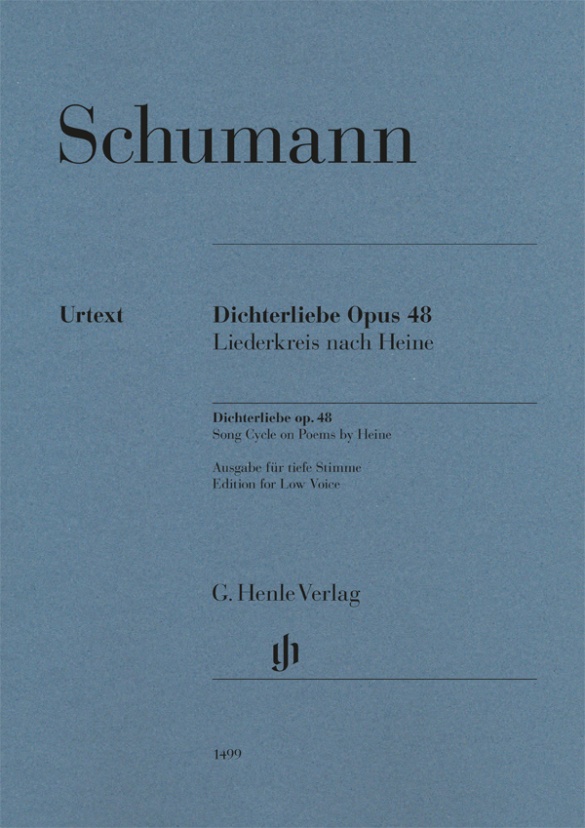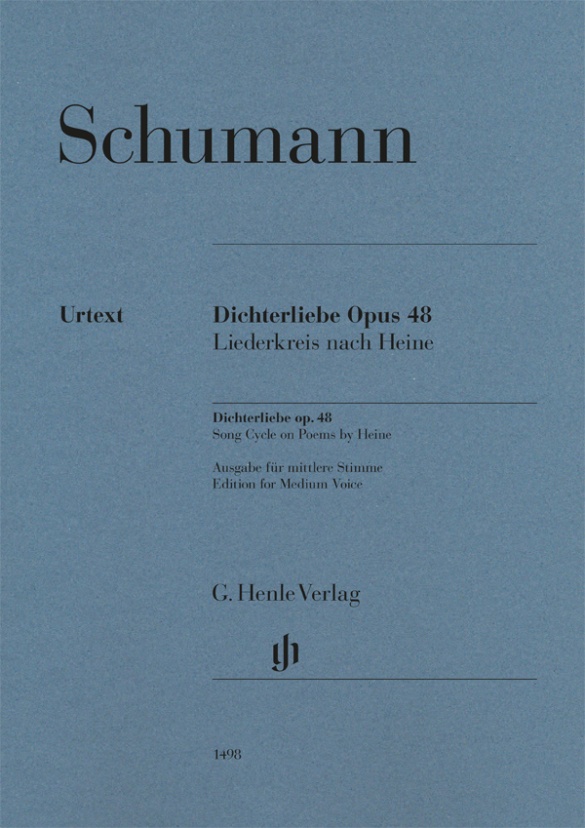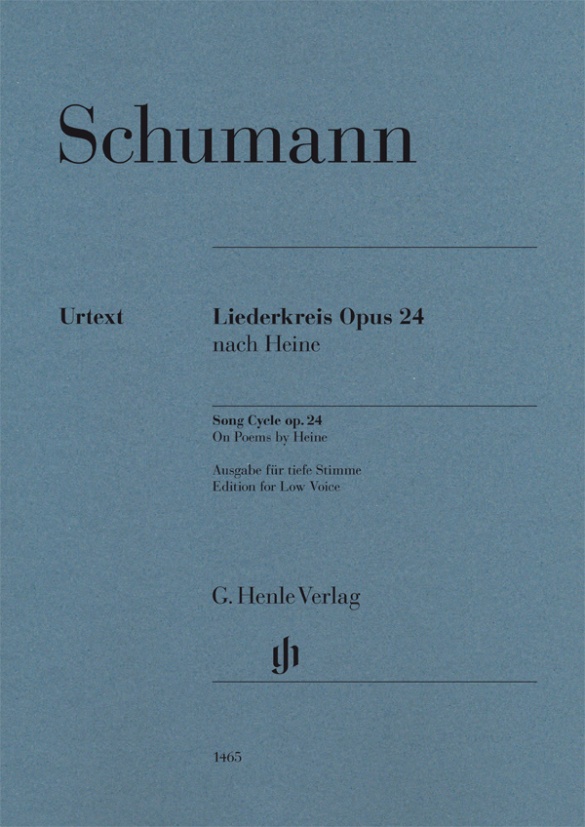

Robert Schumann
Song Cycle op. 24
Schumann was the first to set a complete cycle of Heinrich Heine’s poems to music. His literary “forks of lightning” had already fascinated Schumann when he was 17 years old. However, he only wrote opus 24 in 1840, in his “year of song”, choosing to set a cycle of poems from the “Buch der Lieder”. He wrote the following to his fiancée: “Ah, Clara, what bliss it is to write for the voice”. This enthusiasm is reflected in each of the nine songs.
At long last, singers with a lower vocal range can also rely on Henle’s Urtext editions of Schumann; the wonderful Song Cycle op. 24 on poems by Heine now appears in a transposed version, edited by Schumann expert Kazuko Ozawa. With the support of celebrated Lieder accompanist Gerold Huber, Henle now offers baritones carefully arranged transpositions for low voice. This Urtext edition includes an extensive preface on the origin of the work and a detailed Critical Report on the edition. The original edition for high voice is available in HN 548.
mws-henle.cms.title-works.headline
mws-henle.cms-product-detail.composer-headline
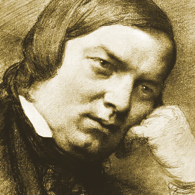
Robert Schumann
Connected with his oeuvre is the term he coined, Poetic Music, with which he strove for a fusion of literature and music, a paradigm particularly seen in his lyric piano pieces prior to 1839. Thereafter he devoted himself to other genres (song, symphony, chamber music, among others).
| 1810 | Born in Zwickau on June 8, the son of a bookdealer. |
| from 1828 | Studies law in Leipzig, piano with Friedrich Wieck. Decision to pursue a career in music. |
| 1830–39 | He exclusively composes piano works, mostly cycles, including “Papillons,” Op. 2 (1829–32); “Carnaval,” Op 9 (1834/35); “Davidsbündlertänze,” Op. 6 (1837); “Kinderszenen” (“Scenes from Childhood”), Op. 15 (1837/38); “Kreisleriana,” Op. 16 (1838); “Noveletten,” Op. 21 (1838). |
| 1832 | A paralysis of a finger in his right hand makes a career as a pianist impossible. Founding in 1833 of the fantasy brotherhood the “Davidsbund” (“League of David”). |
| 1835–44 | Editor of the Neue Zeitschrift für Musik (New Journal of Music). |
| 1840 | Marriage to Clara Wieck; 138 songs, including the Eichendorff Liederkreis, Op. 39; the song cycle “Dichterliebe,” Op. 48 |
| 1841 | Symphony No. 1 in B-flat major (“Spring” Symphony), Op. 38, and Symphony No. 4 in D minor, Op. 120. |
| 1842 | Three string quartets, Op. 41; further chamber music. |
| 1843 | Teacher of composition at the Leipzig Conservatory. Oratorio “Paradise and the Peri,” Op. 50. |
| 1845 | He settles in Dresden. Journey to Russia. |
| 1845 | Piano Concerto in A minor, Op. 54, Symphony No. 2 in C major, Op. 61. |
| 1850 | City music director in Düsseldorf. Premiere in Leipzig of his opera “Genoveva,” Op. 81. Symphony in E-flat major (“Rhenish”), Op. 97; Cello Concerto in A minor, Op. 129. |
| 1853 | Beginning of his friendship with Brahms. Completion of the Scenes from Faust. Violin Concerto in D minor for Joseph Joachim. |
| 1854 | Suicide attempt and admission to the psychiatric institution in Endenich, near Bonn. |
| 1856 | Death in Endenich on July 29. |
mws-henle.cms-product-detail.author-headline
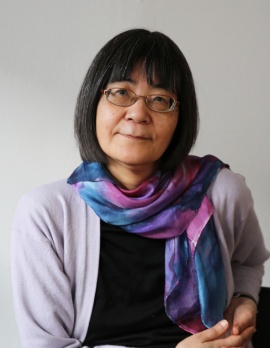
Kazuko Ozawa (mws-henle.person.role.HERAUSGEBE)
Kazuko Ozawa, born in 1954 in Mishima, Japan, studied at the Tokyo University of the Arts between 1973 and 1979, doing her MA on Schumann’s Scenes from Faust in the Musicology Department. From 1979 onwards she continued her studies at the University of Bonn, earning her doctorate with a thesis entitled “Quellenstudien zu Robert Schumanns Liedern nach Adelbert von Chamisso”.
She works as a freelance musicologist and is an external editor for the New Robert Schumann Complete Edition.
Product Safety Informations (GPSR)

G. Henle Verlag
Here you can find the information about the manufacturer of the product.G. Henle Verlag e.K.
Forstenrieder Allee 122
81476 München
Germany
info@henle.de
www.henle.com
推荐
autogenerated_cross_selling
本书目其他版本


